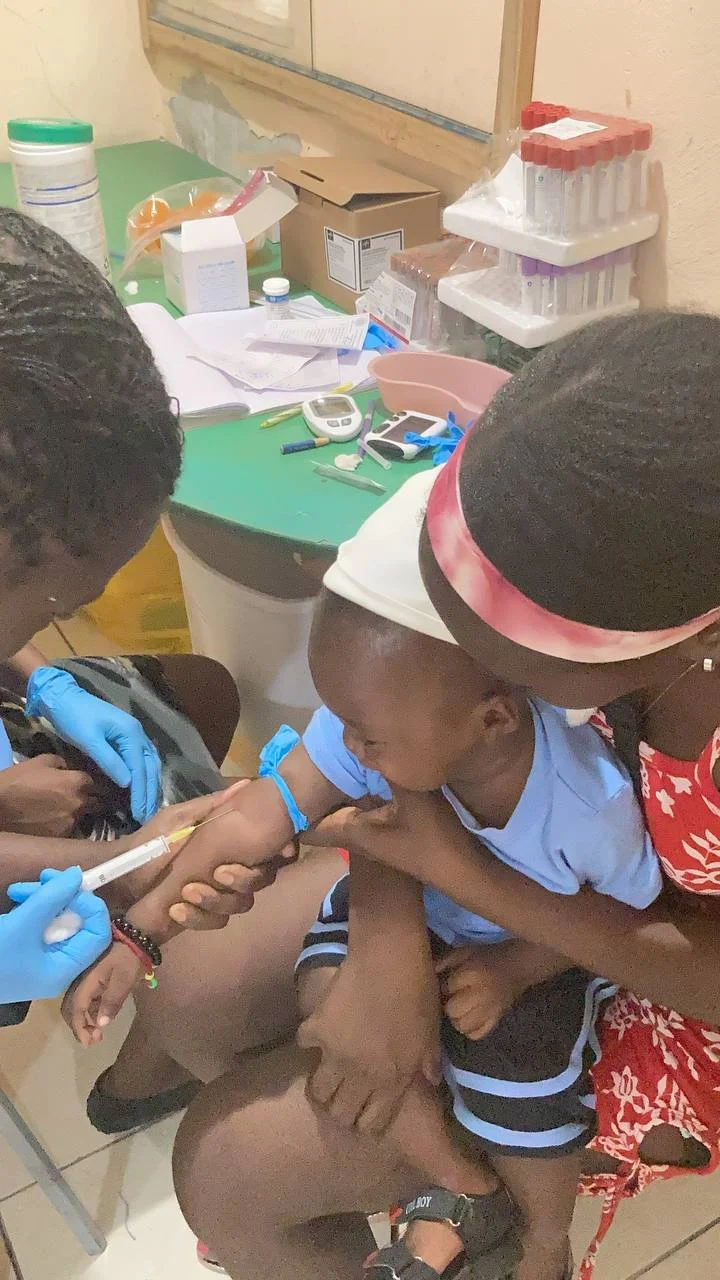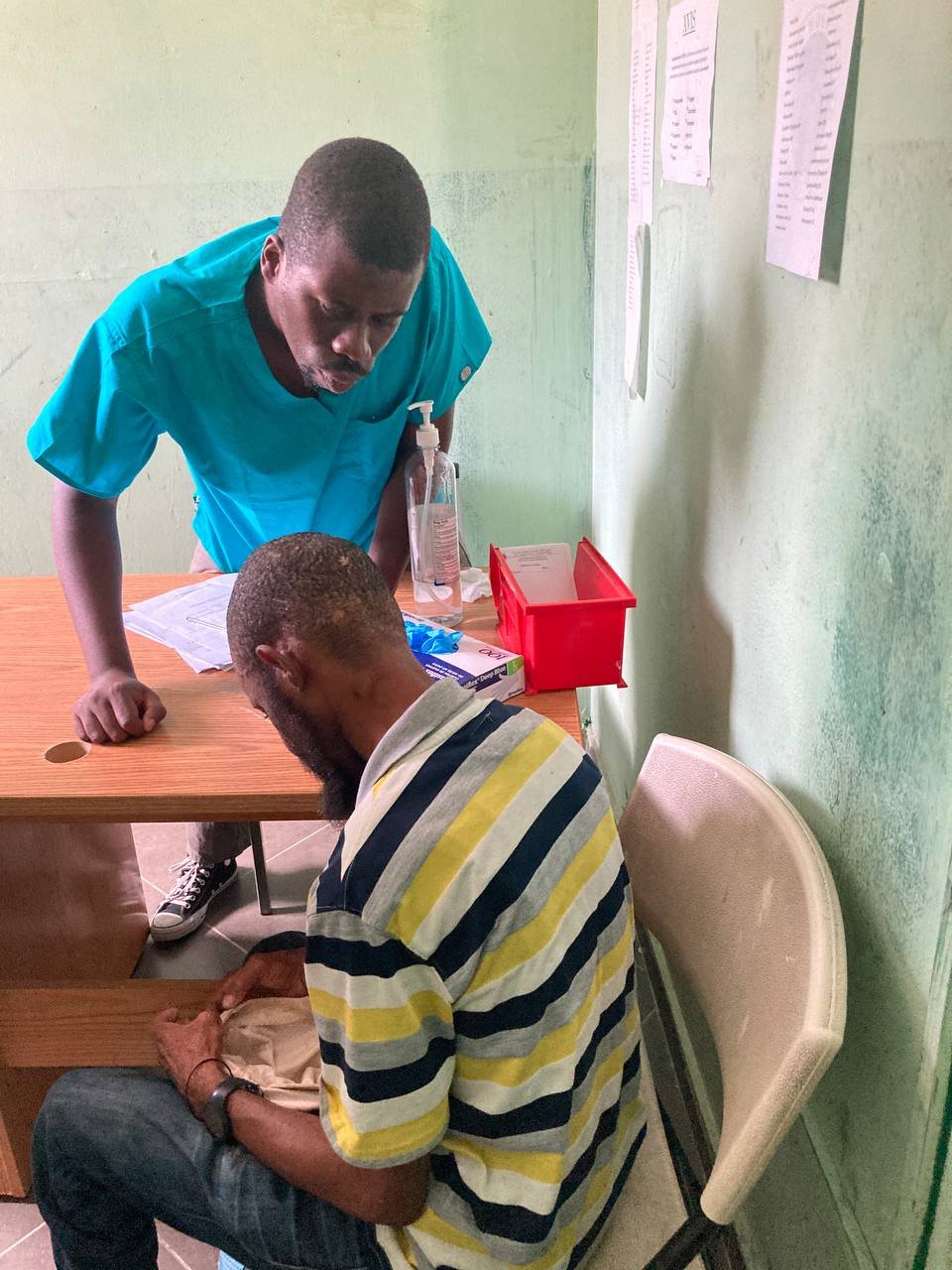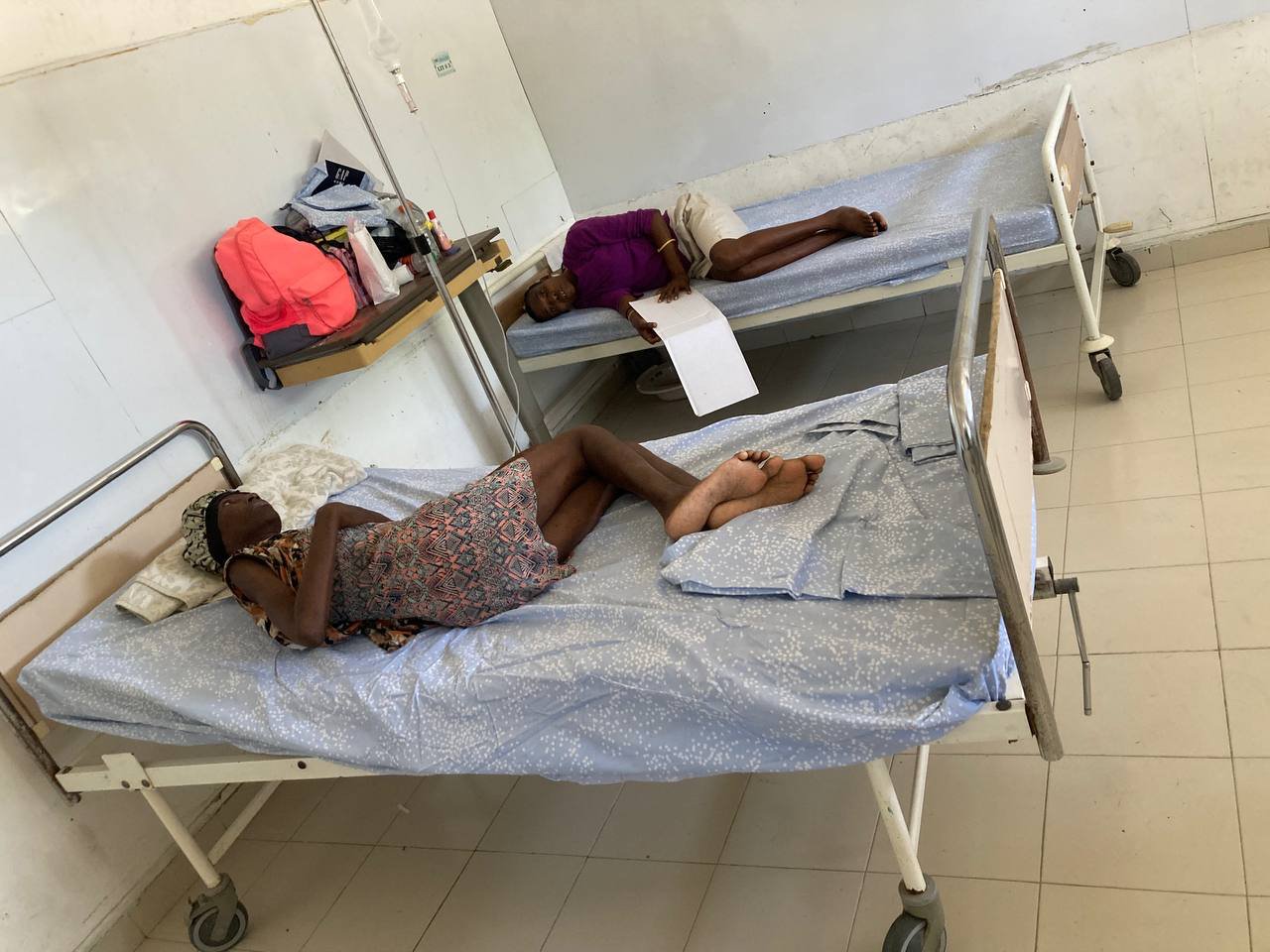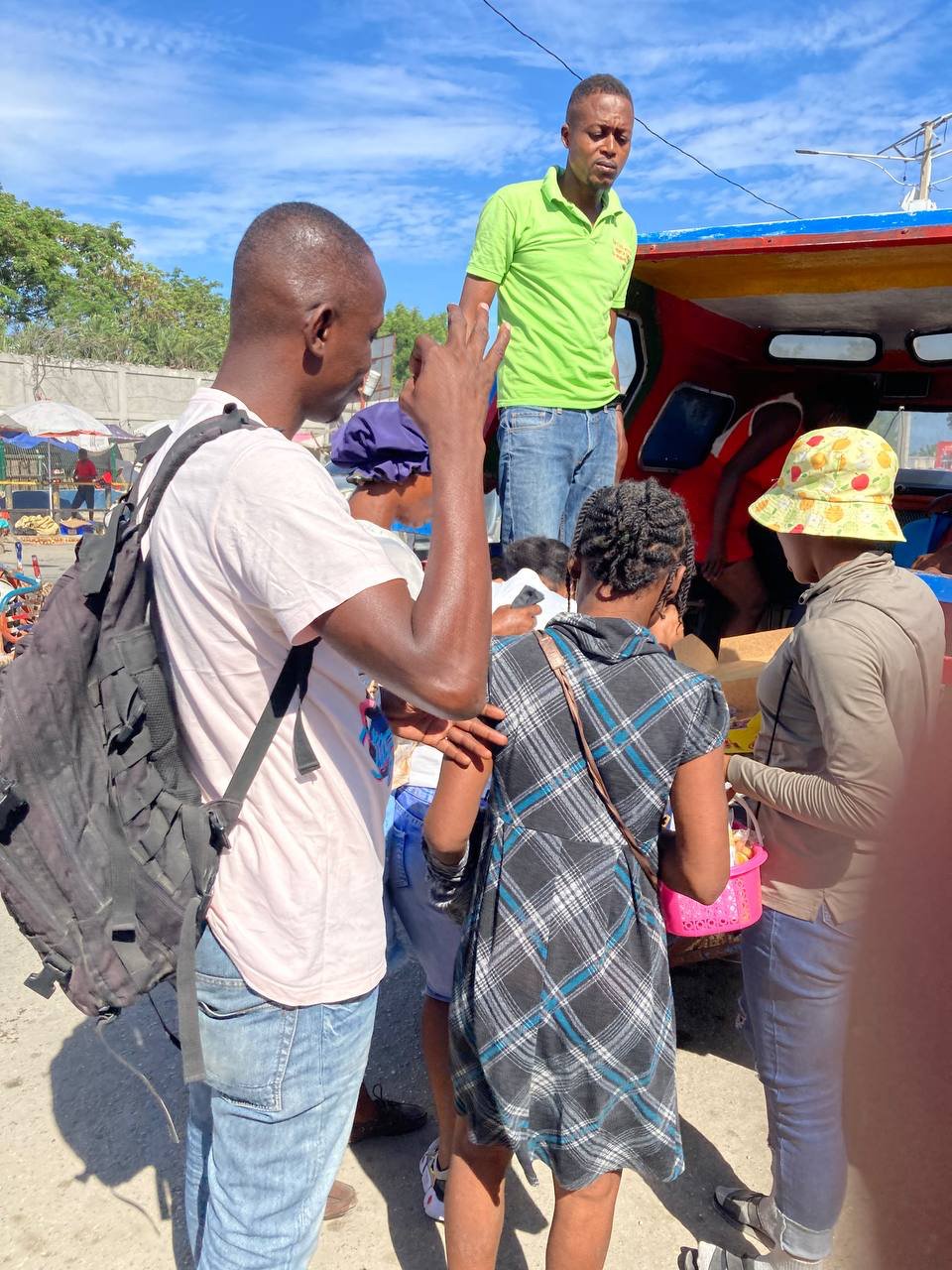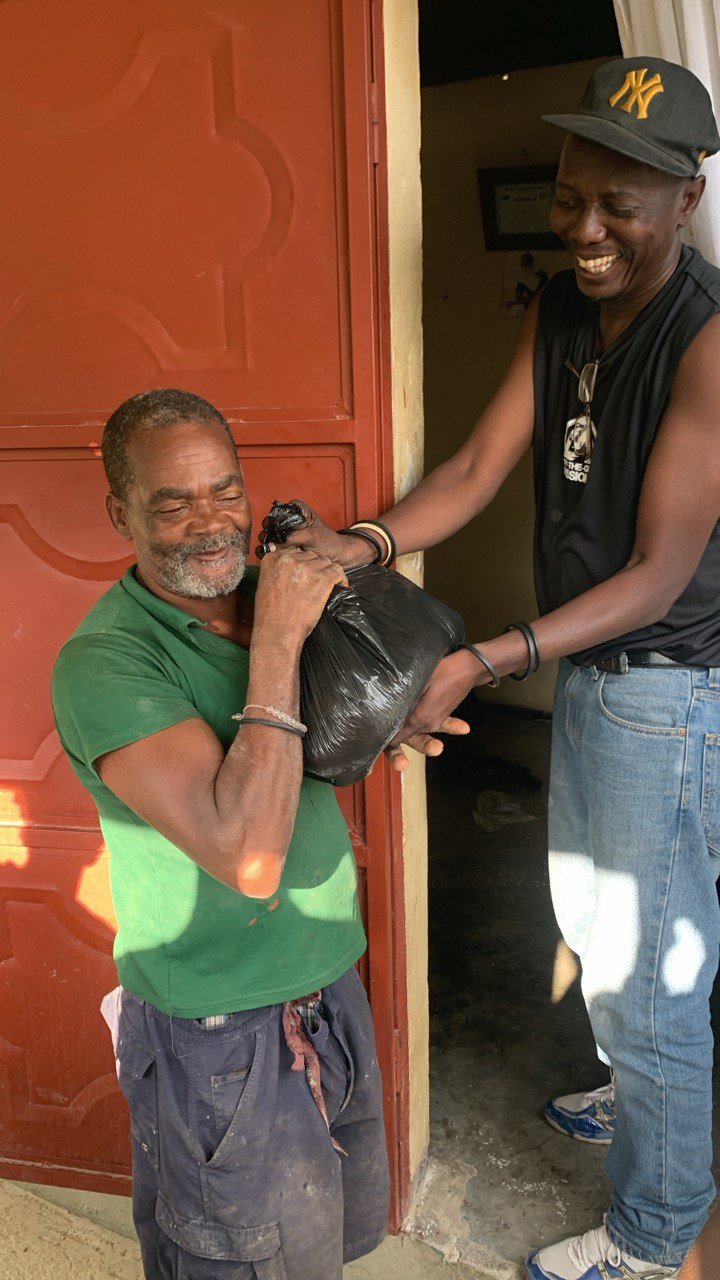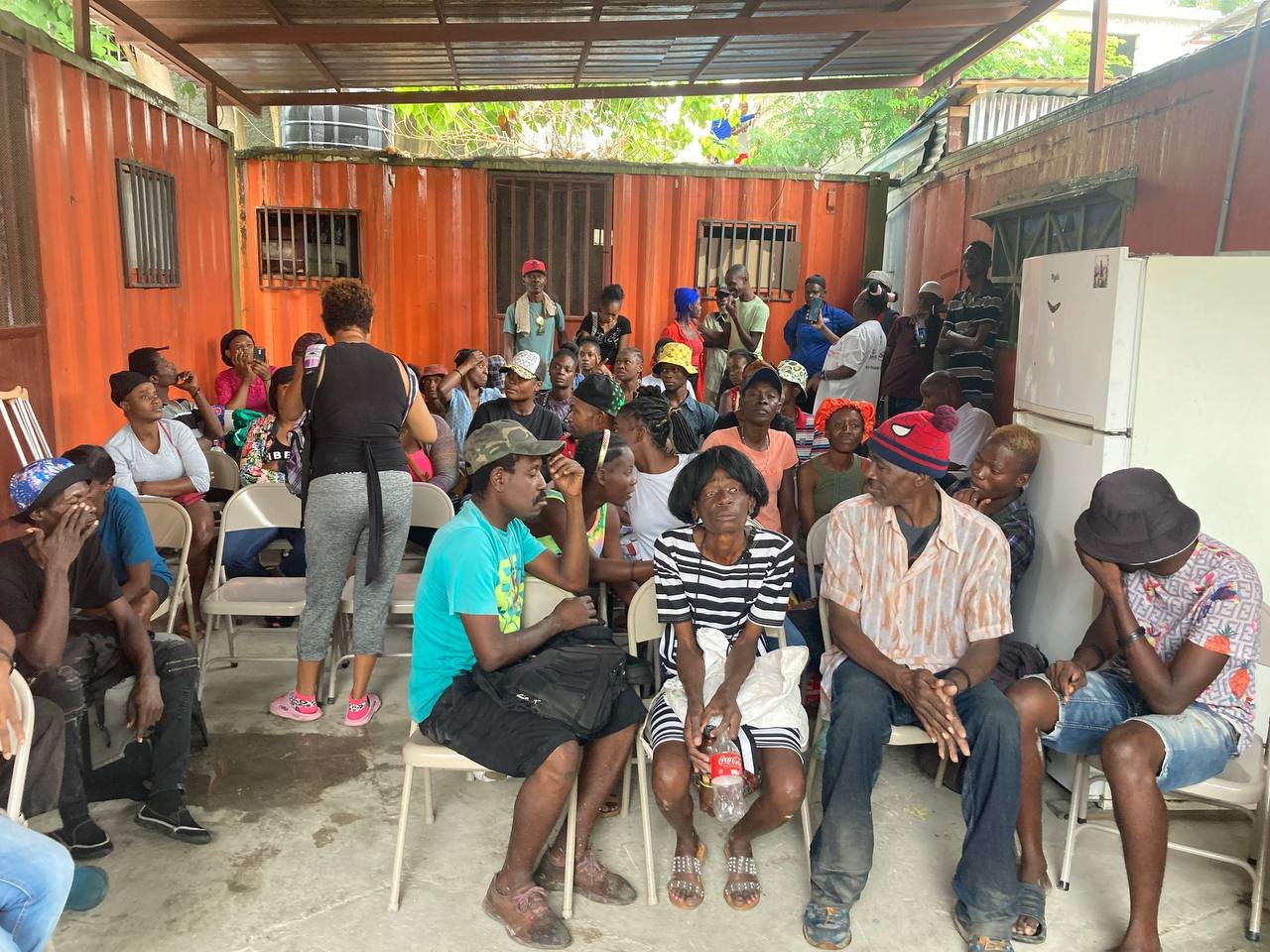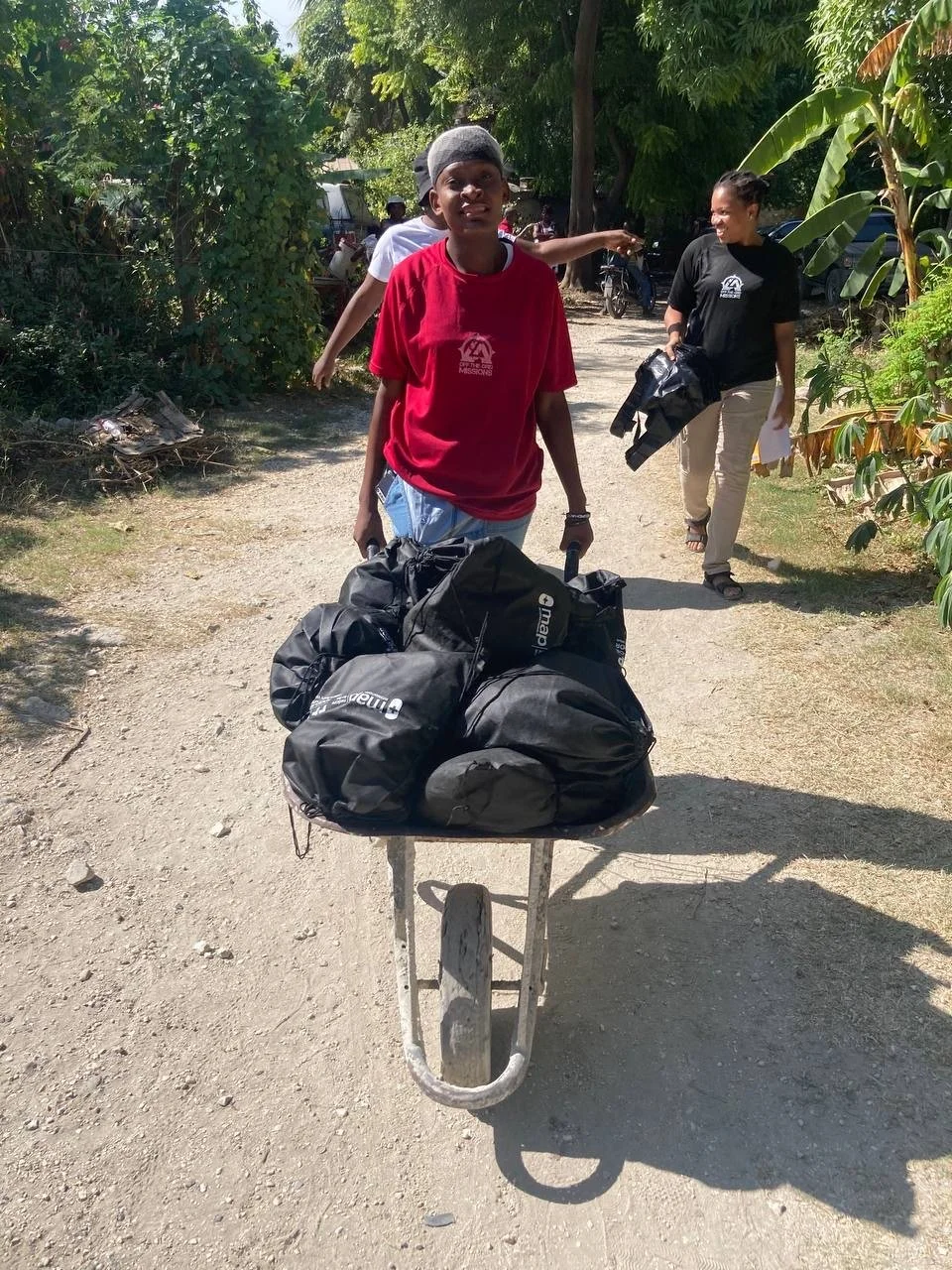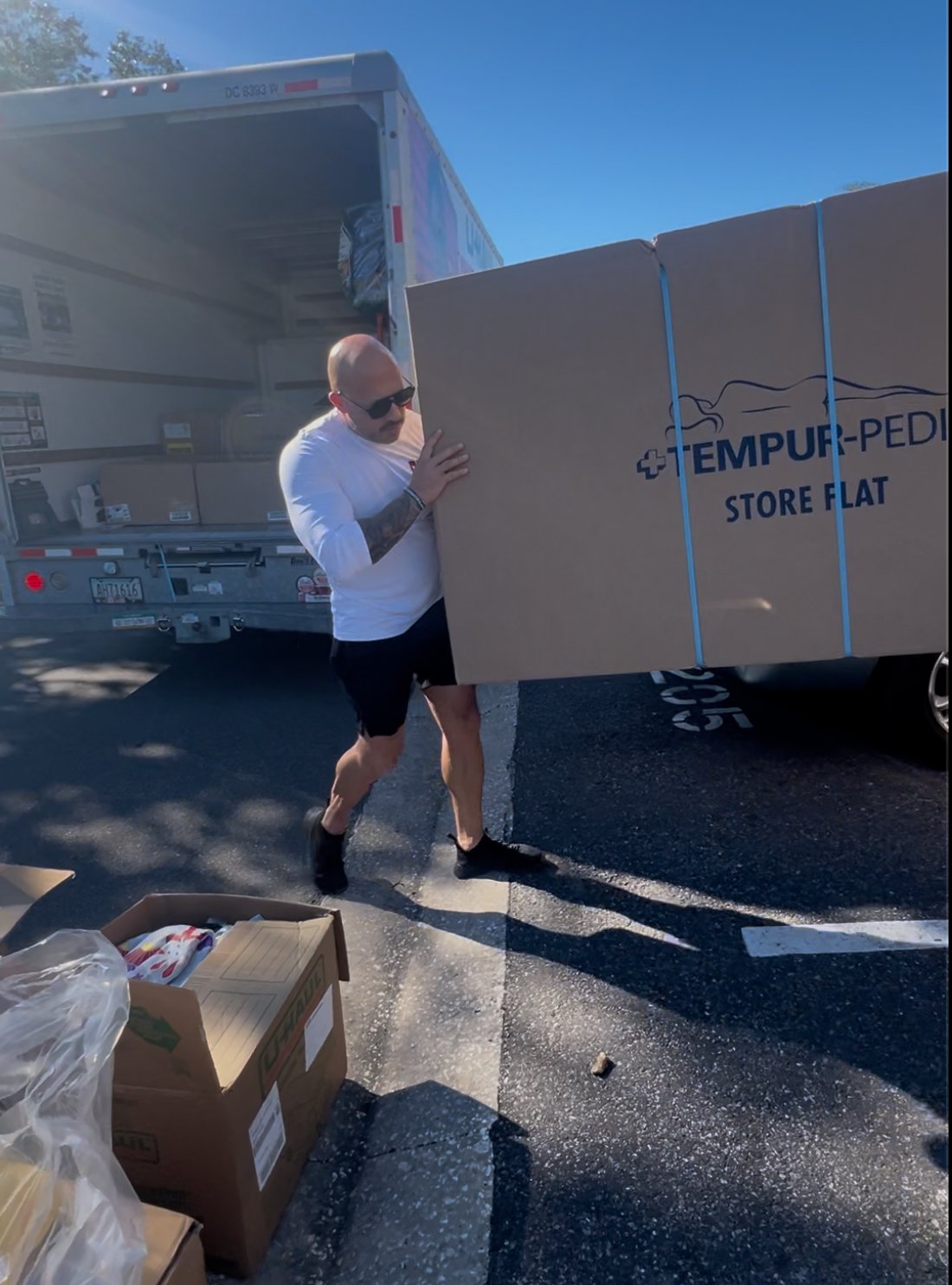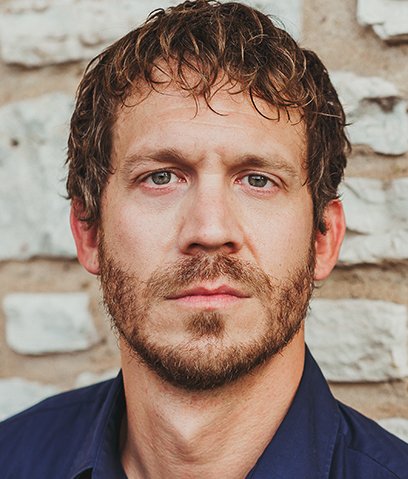
Dear OTG Supporters,
In 2024, amidst countless obstacles, OTG once again remained as the sole non-governmental organization (NGO) dedicated to bridging the gap in disaster response. Your generous contributions have fueled our operations, enabling us to conduct rescues and evacuations and deliver vital aid—including food relief, medical response, solar technologies, menstrual kits, clean water systems, and more—to Deaf, Hard-of-Hearing, DeafBlind, and DeafDisabled (DHHDBDD) individuals and their families in high-risk regions. While OTG fills a critical gap (ensuring that DHHDBDD individuals enduring chaos and oppression receive the life-saving support they need to survive and, when possible, rebuild), over 1.5 billion people worldwide experience hearing loss. For DHHDBDD individuals, who are often language-deprived, the stakes are even higher. OTG’s Deaf-led team is composed of former disaster victims turned responders, fluent in various regional and international sign languages, and trained through OTG’s disaster response program. We work tirelessly to ensure that donor support directly reaches DHHDBDD individuals in crisis.
Here’s a summary of our year-long efforts dedicated to easing the suffering for DHHDBDD individuals and their families around the world.

OTG’s model is not only unique and innovative, but fills a critical gap in traditional disaster response, enabling DHHDBDD individuals to recover and rebuild with the dignity, safety, and independence they deserve.
Traditionally, DHHDBDD individuals have been grouped with Persons with Disabilities (PWDs). However, there are significant differences between the needs of non-Deaf people with disabilities and those who cannot hear, making it essential to recognize DHHDBDD as a distinct group requiring specialized support. For example, an emergency hotline intended for PWDs to call or text may seem accessible but is often unusable for individuals who cannot hear or for those who are language-deprived—unable to read or write.
Deafness exists on a spectrum; while some DHHDBDD individuals communicate via Sign Language, others may speak, and DeafBlind individuals rely on tactile communication. DeafDisabled individuals, who also need physical accessibility devices to navigate uneven terrain and emergency access points, are similarly excluded from conventional emergency systems. This distinction is at the heart of OTG’s mission, shaping how we work and why we prioritize tailored solutions for DHHDBDD individuals in crisis. As you read about the places we serve, the challenges we face, and the lives we impact, we encourage you to keep in mind the unique needs of this community and the critical role your support plays in ensuring no one is left behind.

Long Term Aid
in Haiti
OTG’s Longest-Running Program, Serving Deaf Families in Haiti for Over 11 Years

Isolation, Unimaginable Suffering, and the Reality of Being Left to Die
—this is the fate faced by DHHDBDD families in Haiti without OTG’s life-saving operations. Providing aid in Haiti lacks safe corridors or secure transportation routes for DHHDBDD victims to hospitals. Gangs will constantly stop our team en route, and invasions can restrict when we deliver aid. These barriers have led to immense suffering and, tragically, even death. There is no helpline to call, no police to help, no ambulance ride to the hospital; DHHDBDD people rely entirely on OTG’s accessible hotline for safe evacuations to secure zones. However, due to limited resources, victims often endure grueling hours-long motorbike journeys through treacherous terrain. Despite an unchangeable environment, OTG’s operations in Haiti remain a lifeline for DHHDBDD individuals and their children, saving them from excruciating and life-threatening circumstances.
Many of the families we are supporting live in isolated makeshift encampments lacking flooring, beds/bedding, and adequate structural support (walls held together by wood, tarps, and metal sheets). These deteriorating living conditions have resulted in an increase in OTG’s medical evacuations to our partnering hospital, Centre Hospitalier de Fontaine, averaging 4-8 patients per visit. Health issues are exacerbated by hunger, malnutrition, and the lack of clean water, leading to skin infections. The severity of the situation is compounded by the volatile environment; without warning, DHHDBDD individuals are continuously exposed to gunfire. Furthermore, constant exposure of wounds to dirt and debris, coupled with the lack of access to clean water, is hindering proper healing and increasing the risk of life-threatening infections.
[Photos above of OTG’s team operating safe route evacuations, providing communication access in the hospital, and access to medical – 100% of the operations are paid for with donations]
We Are a Lifeline for Over 300 Deaf Families in Haiti
Four years ago, our campaign to end violence against DHHDBDD people in Haiti was followed by a turbulent time: the Haitian President’s assassination and the brutal attack and burning of a Deaf camp housing many DHHDBDD families. Since then, Haiti has faced a collapsed government, gang control, aid organization closures, kidnappings, cholera outbreaks, and devastating floods, further isolating the DHHDBDD community. Despite these challenges, we strengthened our team, built new partnerships, and continued our work, which has become harder but more critical than ever.
250% Increase in Aid Distribution Since 2023
OTG’s Safe Haven Program for Deaf Women Expands in 2024 to Support OTG’s Growing Life-Saving Operations
At the Safe Haven, DHHDBDD women and girls find safety and the tools to rebuild their lives and thrive. DHHDBDD community members, especially women and girls, face daily struggles with physical abuse, sexual assault, and exploitation. One of the most heartbreaking realities is the "Restavek" system—a form of modern slavery where DHHDBDD children, trapped in systemic poverty and unable to communicate with their families, are sent away as domestic workers. In response, OTG launched the Safe Haven program in 2020, offering a private, secure space staffed entirely by Deaf Haitians, where women and girls can connect, learn, access education and job training, and receive hot meals and essential care—all while building confidence and independence. Supported by Deaf-friendly neighbors, the program expanded this year to include job opportunities, empowering Deaf women with disaster preparedness training and engaging them in distributing life-saving aid to their communities.

Middle East
OTG Expands Humanitarian Aid Across Various Regions
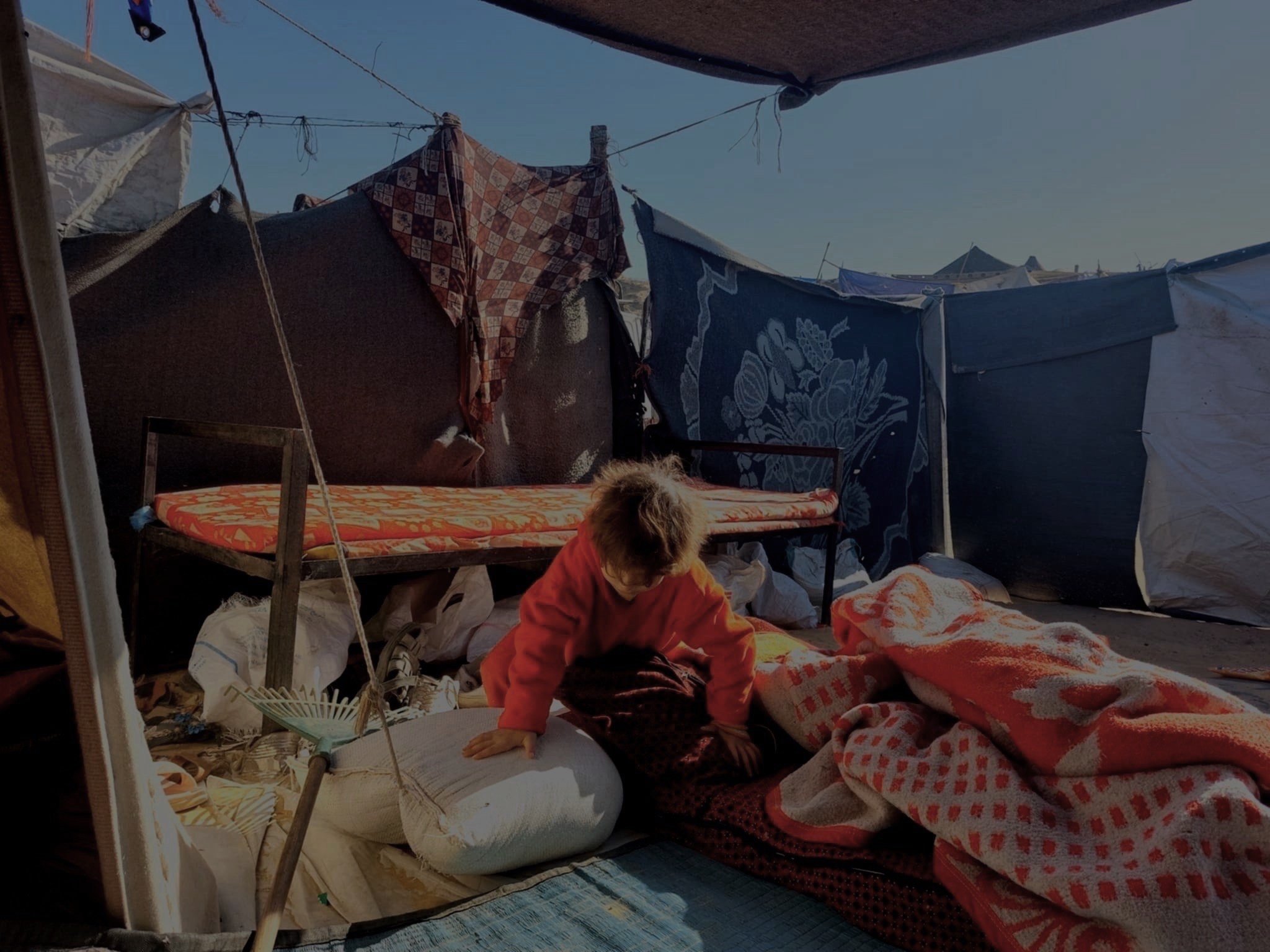
There Is No Time to Rebuild When the Missiles Keep Dropping
Unlike natural disasters, where the impact is a single event followed by rebuilding –regions bombarded by missiles face an ongoing cycle of destruction, trauma, and survival. Families have no opportunity to rebuild as they endure constant danger, with loved ones injured or killed.
This year, OTG’s operations continued across the Middle East, focusing on areas where DHHDBDD communities are at greatest risk and cut off from traditional aid. Such regions do not have accessible alerts for audible warnings for threats such as missiles or evacuation protocols, nor are there bomb shelters to take cover, leaving DHHDBDD families in these regions most vulnerable and exposed. Throughout Gaza, Lebanon, Türkiye, and Syrian refugee camps, we transported, distributed, constructed, and implemented essential supplies such as food, hygiene kits, tents, water filtration systems, accessible communication tools, beds, bedding, menstrual products, and more to DHHDBDD families struggling amid ongoing and escalating violence. We supported displaced DHHDBDD individuals who are often overlooked and left without resources. Throughout these regions, dozens of DHHDBDD people have been killed, this includes members of OTG’s team’s family members. We witness resilience all around the world in different forms when it comes to impact, recovery and rebuilding.
Unfortunately, in regions like Gaza, there are no opportunities to “recover” and “rebuild” when people are in survival mode. Until there is a permanent ceasefire, building tents for shelter and distributing local aid is a bandaid. But a critical bandaid, as it serves as an essential bridge to their long term survival and let them know they have not been forgotten.
2024 is the Deadliest Year for Humanitarian Aid Workers
This year has been the deadliest for humanitarian aid workers, highlighting how dangerous it is to provide help in crisis zones. For OTG, the risks are especially high, as we work not only in areas affected by violence, natural disasters, and instability but also with DHHDBDD individuals who are often excluded from traditional aid efforts. In Gaza, for example, our team members have been forcibly displaced over 6 times in one year, moving from one tent or shelter to another due to the dangers. Every time our team is displaced, our operations pause, further affecting DHHDBDD people in crisis. Adding to the risks, traditional insurance and travel insurance do not cover crisis/disaster zones, leaving our team without a reliable safety net. Threats to aid workers extend beyond Gaza, with high levels of violence, kidnappings, injuries, harassment and arbitrary detention. Our work is high-risk, and every team member has been impacted in countless ways.

Hurricane Response
Hurricanes Helene & Milton in the United States

United States Five-Part Mission
Hurricanes Helene and Milton are just the latest in a series of devastating disasters that have tested the resilience of DHHDBDD communities across the United States. Following the devastating impact of hurricanes Helene and Milton, which ravaged through five states, we immediately responded to the significant gap in access to life-saving information during the crisis as a result of widespread power outages and much of the available content online inaccessible due to a lack of captions or sign language. With many left without the critical resources needed to navigate the aftermath. We launched a five-phase disaster preparedness and response approach.
Emergency Hub: Established a fully accessible hub for real-time updates on food, transportation, shelters, and aid points.
Storm-Proofing: Secured furniture and entryways for DeafBlind and DeafDisabled individuals to reduce hurricane damage.
Evacuations: Relocated DHHDBDD families, service animals, and pets while advocating against exclusionary shelter protocols.
Adapting to Recovery: Delivered hot meals, salvaged keepsakes, and distributed essentials like mattresses, accessibility tools, and clothing.
5. Groundbreaking: An OTG-Sponsored Accessible Storm Shelter!
As a proactive measure for yearly hurricane seasons, we provided furniture, equipment, and supplies to establish an accessible shelter tailored to the DHHDBDD community within Florida’s flood-prone 'Zones A, B, & C' evacuation areas.
Special thank you to the Deaf Hard of Hearing South Florida and the Family Center of Deafness.

Deafness is a Spectrum

There’s No One-Size-Fits-All Solution
As Deafness exists on a spectrum, spanning a wide range of lived experiences and identities among people with hearing loss, there is no one-size-fits-all solution. This is why it is crucial for OTG’s representatives to embody the diversity of the communities we serve around the world.
In 2024, OTG proudly introduced its team of ambassadors, representing the diversity within the DHHDBDD community, including signers, non-signers, CODA (Children of Deaf Adults), and Sign Language Interpreters. Each ambassador brings an intimate understanding of OTG’s operations, rooted in both their personal connection to its mission and the challenges faced by DHHDBDD communities. Their longtime dedication and lived experiences amplify OTG’s impact, raise awareness, and address the unique needs of DHHDBDD individuals and their families during times of crisis.
Meet OTG’s 2024 Ambassadors

When trauma persists, so must we.

How We Tackle Division and Inaction
A harsh truth is that division and hatred often perpetuate cycles of suffering and disconnection—a reality we face as aid workers striving to save lives amidst political debates. These forces create barriers to compassion, understanding, and action, leaving the most vulnerable even more isolated and forgotten. Our Humanity Is Not a Debate movement is a call to action—a commitment to support those who are marginalized and provide life-saving support where others cannot or will not. We created this to cut through the noise of hate and division, focusing on what truly matters: saving lives, restoring dignity, and proving that compassion can win even in the face of the darkest challenges.
A rarely highlighted aspect of our work is the relentless advocacy that happens behind the scenes. Before addressing Human Rights, Equality, and Access, we must first confront the foundational need for Basic Human Decency. Every action we take on the frontlines is a deliberate step to combat extreme neglect, discrimination, racism, Audism, systemic barriers, and violence. Team OTG continues to advocate tirelessly—whether at borders, in hospitals, refugee camps, shelters, or when given opportunities to share our mission on public platforms—amplifying the voices of those suffering in the shadows.
In times of disaster, a “Hierarchy of Privilege” determines who reaches safety and who is left behind—access to information, legal documentation, mobility, health resources, financial means, and more all play a role. In response, we implement a “Hierarchy of Focus,” prioritizing both regions and marginalized DHHDBDD communities in greatest need and cut off from humanitarian aid. Severe resource limitations, compounded by disaster inflation, disaster capitalism, logistical barriers, and travel restrictions, mean OTG faces difficult choices every day—whether it’s providing a water filter over a solar light, evacuating someone for medical care or risking food shortages. Despite these challenges, OTG continues to fight for those most often overlooked. Your contributions fuel our high-impact missions, enabling us to deliver life-saving assistance and ensure accessibility for DHHDBDD populations—at no cost or added stress—during critical moments.
Disasters are unpredictable. But one consistent pattern is that each year is harder than the last. 2024 was no exception. However, in 2024, with your tremendous help, Off-The-Grid Missions has once again risen to meet that challenge.
Thank you for taking the time to read through our 2024 year-in-review. Amidst the challenges, your support remains an honor. We're hopeful you'll continue this journey with us in 2025.
Respectfully Yours,
Angela Maria Nardolillo
Founder & President on behalf of the entire team at Off-The-Grid Missions, NGO
Follow us online @offthegridmissions

2024 Transparency Awards
“If This Organization Aligns With Your Passions and Values, You Can Give With Confidence”
-Charity Navigator, 2024
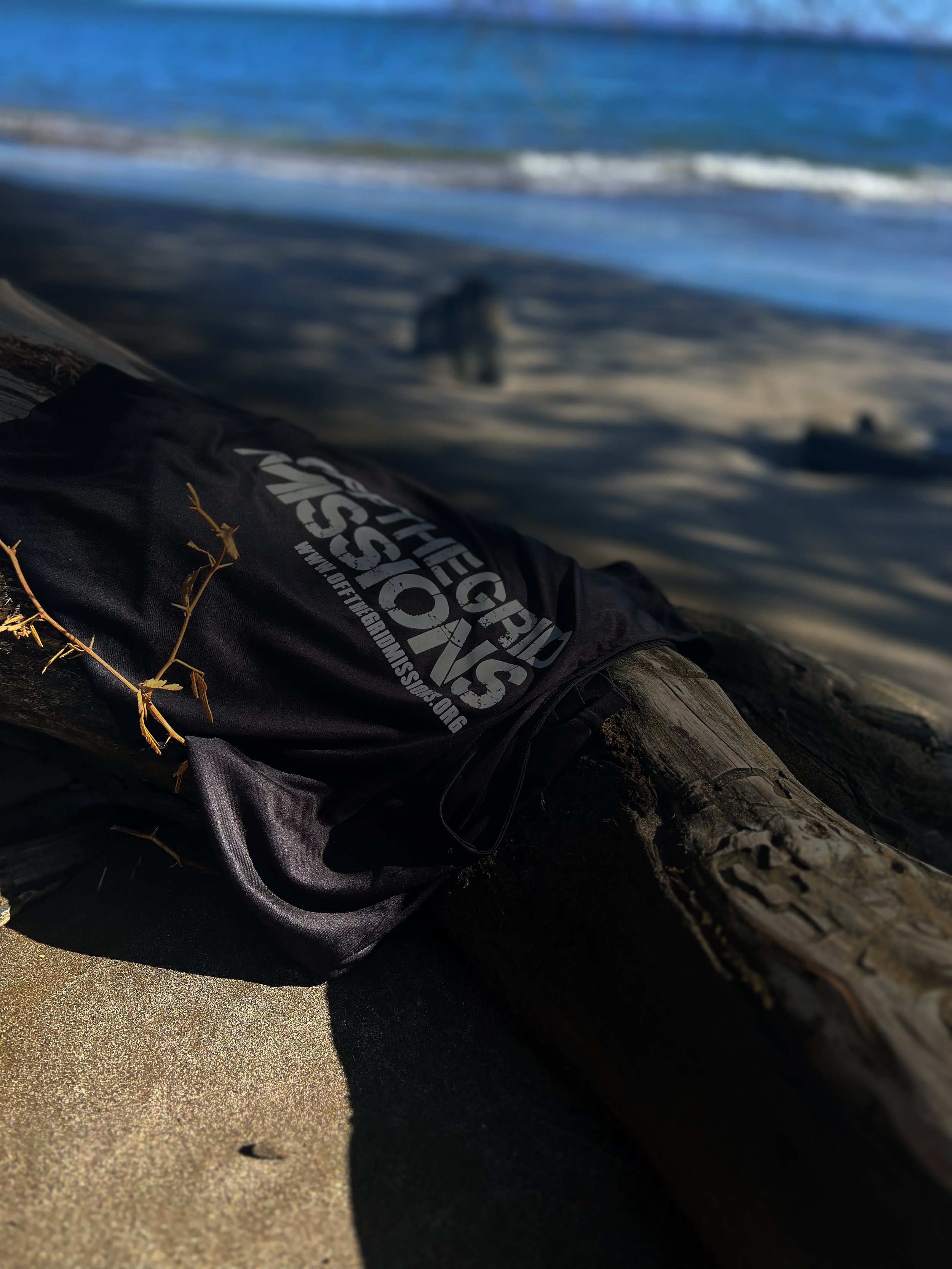
In 2024, OTG Once Again Ranks Among the Top 0.1% of Charities Nationwide for Transparency
Amidst chaos and extreme challenges, OTG remains committed to transparency by sharing situational reports, accessible media, and financial updates, even while navigating disasters, communication barriers, fundraising struggles, and limited administrative capacity. In 2024, OTG once again proudly achieved the "Platinum" Seal of Transparency from Candid/Guidestar, a Four-Star rating on Charity Navigator, "Top-Rated" status from Great Nonprofits, vetting by GlobalGiving, and “Top-Rated” for the one and only people’s choice award at Great Non Profits—placing OTG once again in the top 0.1% of charities nationwide for transparency.
Thank you to our 2024 Sponsors & Partners!

Match Campaign
Thank you to The Pepita Foundation for matching up to $30,000 in donations!

